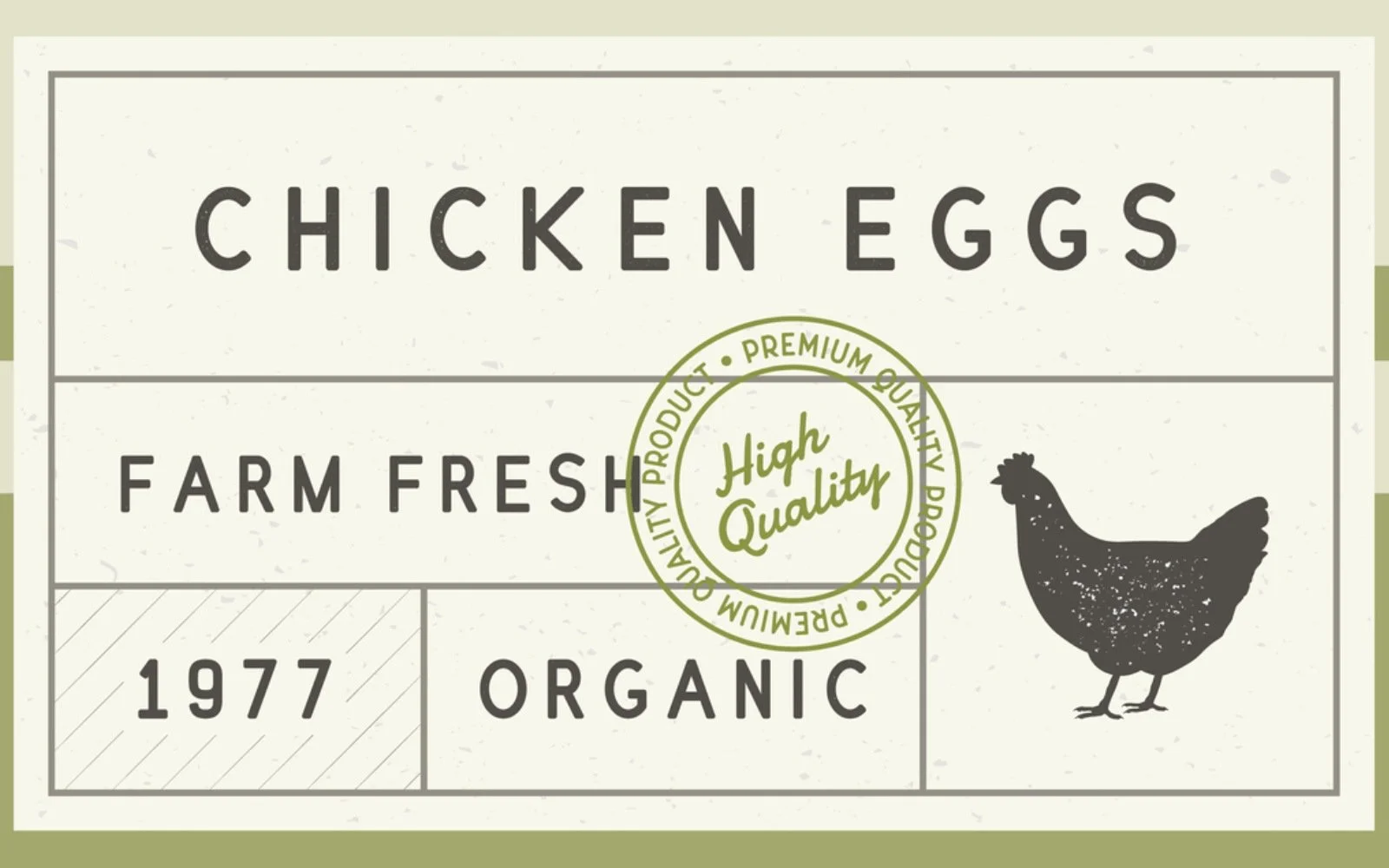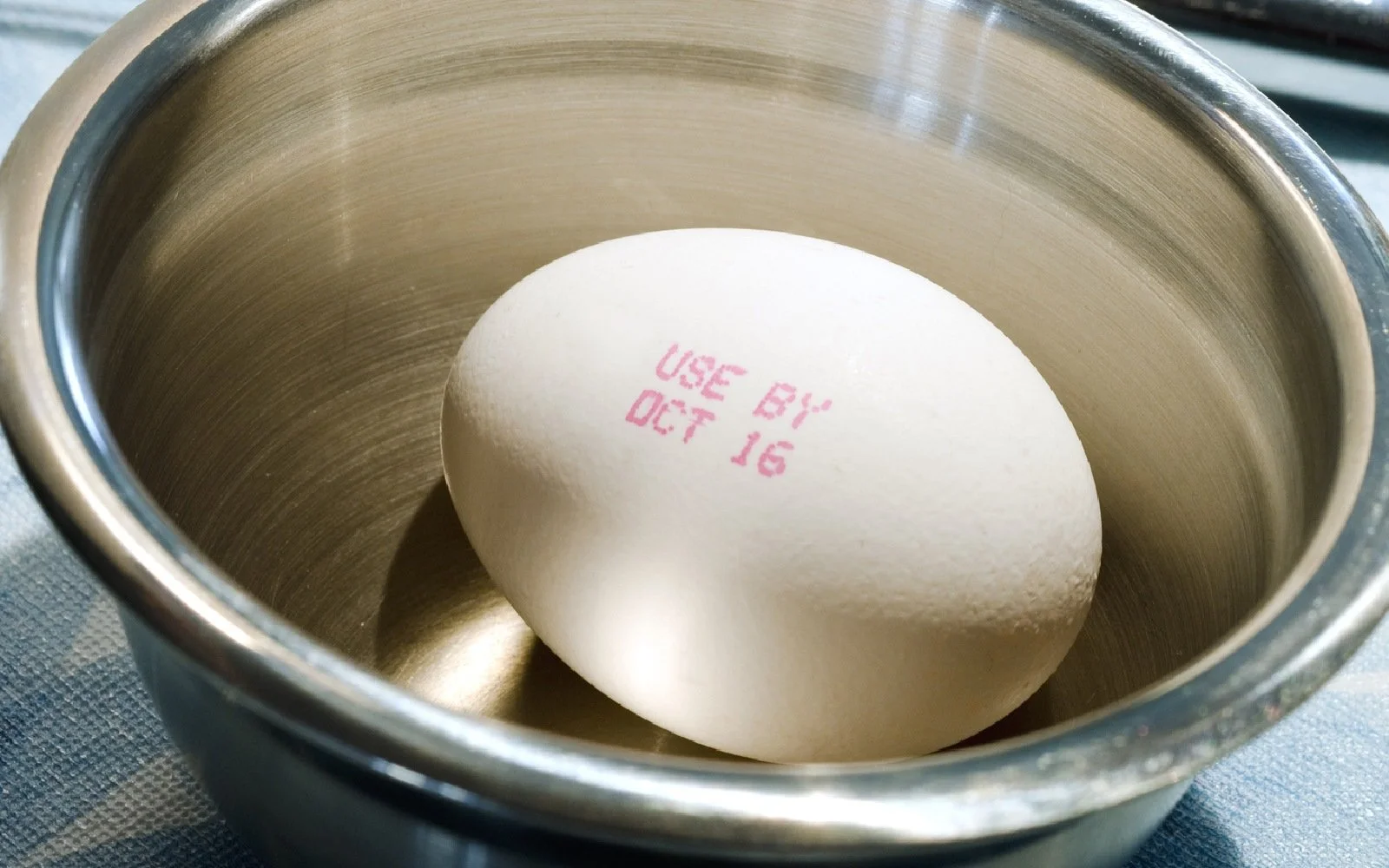How To Shop for Eggs in Texas
Discover > Texas Home Cooking > How To Shop for Eggs in Texas
Whether eaten scrambled, poached or fried, eggs are a breakfast staple in many Texas households – including my own. That's why it is easy to find shops selling eggs. Although buying eggs is not rocket science, there are some vital details you don't want to miss out on. Otherwise, you'll be purchasing eggs in bulk infected with Salmonella.
Before, when I shop for eggs “near me,” I would simply pick up a carton of eggs in the supermarket without too much thought, just checking to see that none of them were broken!
But this all changed a few years ago when I read an article about food poisoning.
The Center for Disease Control and Prevention revealed that “bad” eggs continue to cause a plethora of food illnesses in the United States. In 2018, there was an outbreak of salmonella enteritidis infections, caused by eggs from a farm that did not implement the required safety measures.
And to this day, there are still numerous cases of outbreaks caused by contaminated eggs across the country.
Both the US and Texas Departments of Agriculture are vigilant when it comes to egg safety, making sure that eggs sold to consumers meet their rigorous quality standards. Eggs sellers in the State of Texas, including those selling backyard produce, must meet certain conditions from both the TDA and the Texas Department of State Health Services (TDHS); this includes obtaining particular licenses and ensuring correct labeling, proper handling, and storage.
What’s more, as well as contributing to health issues, egg quality also determines the nutritional value of the product.
As I’ve become a more health-conscious and prudent food shopper, I’ve started to notice how consumers are bombarded with various labels on their food items. And when it comes to purchasing eggs, this is no exception.
The Most Important Label to Consider When Buying Eggs?
Nowadays, there are plenty of labels printed and stuck on egg cartons that you should be aware of. However, one of the most important labels is the USDA shield – this stamp is the ultimate assurance of quality and safety regarding egg products.
Eggs sold to consumers must be labeled with a grade( Grade AA, Grade A, Grade B), but USDA grading of eggs is, in fact, voluntary. Eggs not graded according to USDA standards do not use the USDA grading system and are not marked with the USDA shield. Interestingly, in Texas, unlicensed egg sellers are required to label their eggs as “ungraded”.
USDA’s egg grading scale is explained below:
Grade AA – The freshest and most high-quality eggs. These eggs have clean shells, thick whites, and shallow air cells.
Grade A – Very high-quality eggs with firm whites. These are the most common eggs you’ll find sold in supermarkets.
Grade B – Have blemishes on their shells and thinner whites than those graded A or AA. These eggs are used for industrial purposes.
Egg Sizes
The USDA also sets standards for egg sizes, which are based on weight:
Jumbo – Eggs weigh a minimum of 30 oz per dozen, or 2.5 oz each.
Extra large – Eggs weigh a minimum of 27 oz per dozen, or 2.25 oz each.
Large – Eggs weigh a minimum of 24 oz per dozen, or 2 oz each (a standard egg size for many recipes).
Medium – Eggs weigh a minimum of 21 oz per dozen, or 1.75 oz each.
Small – Eggs weigh a minimum of 18 oz per dozen, or 1.5 oz each.
Peewee – Eggs weigh a minimum 15 oz per dozen, or 1.25 oz each.
The Other Labels
The wide array of labels seen on egg products may be informative, but it can also be highly confusing. Some of these labels are actually marketing terms designed to entice people to buy a carton of rather normal, generic-looking eggs.
Among these labels include:
All natural / farm fresh: This just means plain eggs that are minimally processed with no added ingredients.
Cage free / free roaming / free range: These are eggs from hens that are not kept in enclosures, such as battery cages. According to the European Food Safety Authority, salmonella enteritidis is more likely to be found in caged chickens than in cage-free or free-roaming poultry. What’s more, several studies have found that free-range eggs have a better nutritional profile.
Certified organic: This label is audited and issued by the USDA Natural Organic Program. Hens have an organic and vegetarian diet free from pesticides and antibiotics, and have access to the outdoors, living in uncaged facilities. These eggs have a high nutritional value, with particularly high levels of omega-3 fatty acids (compared to non-organic eggs). Omega-3 lowers cholesterol and plays an important role in the prevention of heart disease.
Egg Appearance
Eggshell color - The color of an eggshell is determined by the chicken breed. The most common breeds produce brown or white eggs, though some lay pastel green or blue eggs! Contrary to popular belief, the color of the eggshell does not affect the quality or nutritional value of the egg.
Shell cleanliness - When an egg is laid, it’s covered with a protective film. Eggs sold in a supermarket don’t have this film, as it’s washed off during the processing stage. If you buy eggs directly from a farmer and there’s a little dirt clinging to the egg, don’t worry – just wash it off. The dirt won't affect the inside of the egg at all.
Egg Freshness
Eggs can be packed into cartons for as long as 30 days after they are laid. And when refrigerated, they can be stored for around 3–5 weeks.
To find out how farm fresh the eggs are in your supermarket, you can look at a number of labels issued by the USDA.
Sell by date – No longer than 30 days from the date that the eggs were packed in the carton.
Use by or best by date – No longer than 45 days from the date the eggs were packed in the carton.
Fresher eggs have thicker, firmer whites and smaller air pockets at the egg’s blunt end. Older eggs have larger air pockets at the blunt end. This is because internal moisture evaporates through the porous shell as the egg ages.
Shopping Tip
The most important tip when shopping for eggs is to look for USDA or TDA labels, as these assure the quality of your eggs. Eggs sold in Texas are required to meet the conditions set by the TDA and TDSH, meaning consumers are guaranteed both safety and quality when purchasing eggs in the State.
Though eggs are naturally nutritious, I like to go for cage-free/free-range eggs, as they tend to have more nutritional value – namely, less cholesterol and saturated fat and more protein. Moreover, free-range eggs contain significantly more vitamin A, vitamin E, and omega-3 fatty acids, as well as higher levels of alpha-tocopherol and alpha-linolenic acid (for maintaining a healthy heart) and more beta-carotene.
Shopping Locally in Texas for Eggs
Cage-free, free-range, and pasture-raised eggs can be seen more and more often in the grocery store - a change that reflects the public’s growing interest in animal welfare. While most shoppers can’t really tell the difference between eggs that are pasture-raised, free-range, or cage-free, hopefully, this article will help you crack it!
Differences Between Eggs
Cage-free eggs
Cage-free eggs aren’t laid by chickens kept in tiny, unsanitary cages but instead come from chickens that are allowed to roam freely, which means they’re getting plenty of fresh air and sunshine. You can look for cage-free eggs with a Certified Humane seal, which means the chickens are given at least 1.5 square feet of space per bird and other animal welfare standards are met.
Free-range eggs
You might assume that free-range suggests that the chickens are raised outside, but the term doesn't necessarily mean that. Free-range eggs is the term used for eggs laid by chickens who have access to the outdoors for at least six hours.
Pasture-raised eggs
Sold at farmers’ markets, eggs that are pasture-raised are usually sold by farmers themselves in small batches. These are eggs that come with a guarantee that the hens can roam freely, with 2.5 acres of land allocated per 1,000 birds. Plus they eat an all-natural diet that doesn’t include fillers or growth hormones.
Farmers’ Market Favorites
For yolks that are deep orange in color and extremely flavorful, Thompsons Eggs in Florence is the place to go. They raise hens that produce the finest eggs, as they take time in growing flax, buckwheat, and crimson clover for their chickens to eat. Popular at several farmers’ markets such as Lone Star Farmers Market, it is a well-known fact that their fresh eggs have a higher omega-3 and lysine content. Similarly, Half Mile Acres in Ledbetter is famous for tending to their hens and ducks like royalty. Not only do their chickens run and forage around the pasture, they also have access to fresh, non-chlorinated well water, and eat a non-GMO chicken feed that is free from soy, corn, antibiotics, and hormones. Make sure to visit this farm or find them at their spot at Bastrop 1832 Farmers Market.
Allergy-free, Healthy Eggs
What’s better than a rich, fluffy egg from a happy, free-roaming, pasture-raised chicken? One that doesn’t give you an allergic reaction! A small farm based in Sherman, Prairie Farmstead is on a quest to produce the cleanest meat and eggs. They strive to “heal the land they steward”, making their eggs different from other certified organic eggs on the market.
Pasture-Raised Eggs in an Array of Colors
Expect a cute array of colors when you buy a tray of eggs from these farms!
Harmony Harvest Family Farm in Terrell raises Ameraucanas, which are chickens that lay beautiful blue-ish and green-ish tinted eggs. They also rear Cuckoo Marans, which produce stunning chocolate-brown eggs. Defiant Onez Farm and Ranch raise Cornish Cross Broilers and Barred Rock hens that lay eggs that are pink, light blue, and bright green.
A Trend That Needs Egging On
Whether you call them yuppie eggs or fancy eggs; when it comes to eggs, the taste is synonymous with quality. Raising pastured eggs requires more work, upkeep, and a different farming environment than is needed for eggs from caged hens. No wonder then that their prices are a little steeper. However, by purchasing these eggs you’ll also be supporting small businesses and ethical farming practices here in Texas. So the next time you’re in the mood for an egg-citing breakfast, buy the best pasture-raised eggs in Texas that are laid by chickens who enjoy the Texas sun and wind.
Looking for fresh, grass-fed meat delivery in Texas? Check out these 9 Farms Providing Fresh Grass-Fed Meat Delivery in Texas








